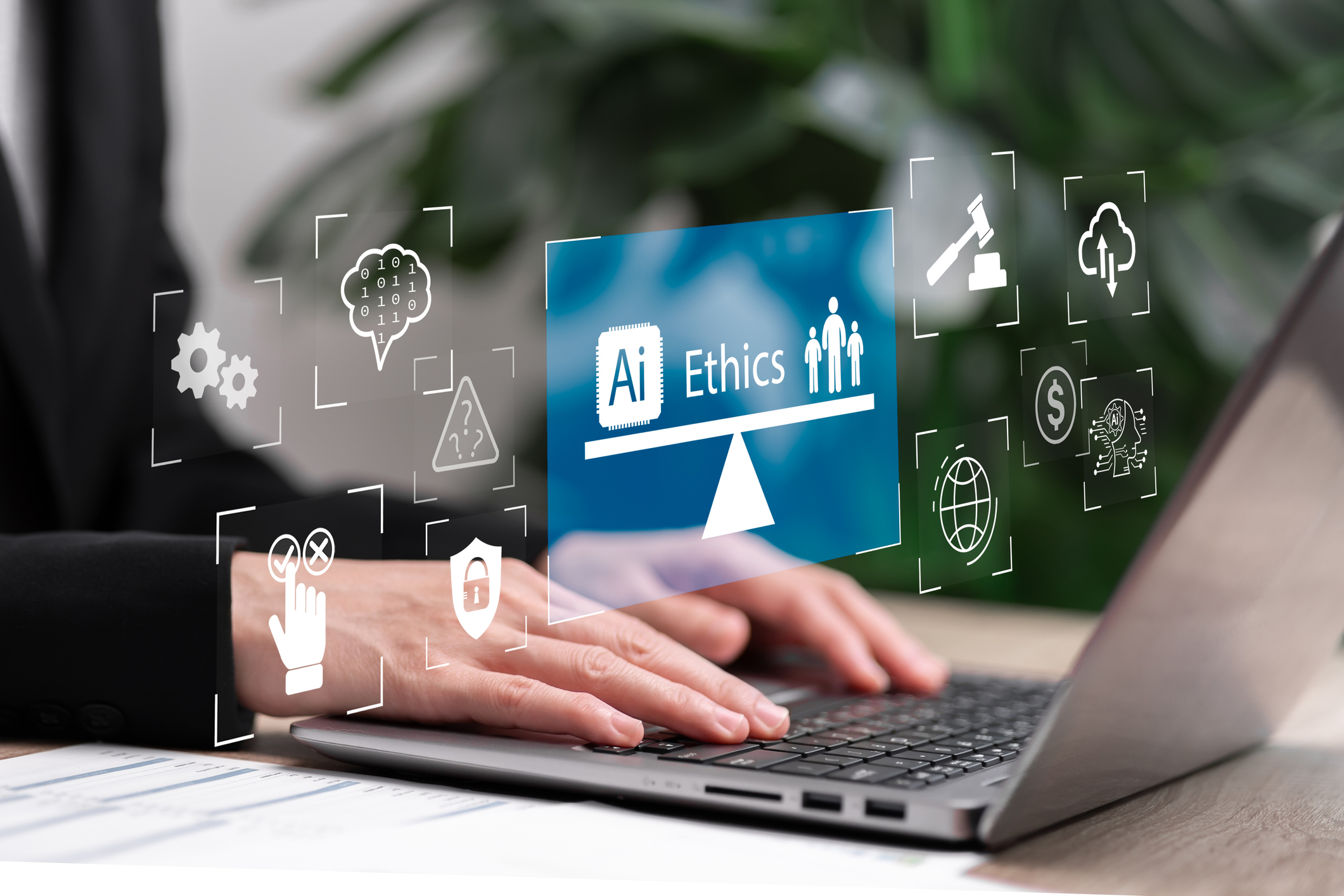 DePaul University faculty are available to discuss the risks, benefits and innovations of artificial intelligence. (iStock/CHOLTICHA KRANJUMNONG)
DePaul University faculty are available to discuss the risks, benefits and innovations of artificial intelligence. (iStock/CHOLTICHA KRANJUMNONG)CHICAGO — As artificial intelligence reshapes how we learn, work and live, DePaul University faculty across multiple disciplines are helping make sense of its effect. From software development and healthcare systems to education policy and advertising ethics, these experts offer valuable insights for journalists covering AI.
To request an interview, contact the expert directly or email
newsroom@depaul.edu for assistance.
EDUCATION
Associate Professor, Teacher Education
• How AI is used in K–12 and higher education
• Personalized learning and assessment tools
• Legal and ethical challenges of AI in education
• Responsible and equitable integration of AI for special education and counseling
SCIENCE, TECHNOLOGY, SOFTWARE & SECURITY
Assistant Professor, Computing
• AI in software engineering: code generation, refactoring and maintenance
• Security applications of AI in detecting vulnerabilities
• Ethics of automated coding and human-AI collaboration in programming
Assistant Professor, Computing
• Deep learning, neural networks, and transformer models
• Large language models (GPT, BERT) and inference techniques
• AI in drug discovery and biomedical applications
• Theoretical AI foundations and optimization methods
Professor, Physics and Astrophysics
• Using AI to design scientific experiments
• Predictive modeling in physics and engineering
• AI applications in building electrical, mechanical and optical systems
Professor, Computer Science
Chair, AI Program
Director, AI Institute
Director, Center for Web Intelligence
• Generative AI and recommender systems
• Personalization algorithms and machine learning ethics
• Risks, regulation and future directions in AI development
• Academic leadership in AI education and policy
Assistant Professor, Computing
• How AI affects human connection, media and self-perception
• Cognition-aware technology and creative uses of generative AI
• AI in wearable tech and edge computing
• Cultural implications of human-AI interaction
HEALTHCARE & HEALTH CARE INFORMATICS
Assistant Professor, Management and Entrepreneurship
Co-Director, Master’s in Business Analytics Program
• AI-powered optimization in healthcare logistics, pharmacy operations and patient scheduling
• Public health and AI-driven service design
• Predictive modeling for patient satisfaction, access, and equity in healthcare delivery
• AI for sustainable operations and data-informed supply chain decisions
Assistant Professor, Computing
Chair, Master’s in Health Informatics Program
• Robotics and conversational agents in healthcare
• AI adoption for elder care and wearable health tech
• Trust, energy use and bias in AI systems
• Effect of AI on scientific reproducibility and health outcomes
Assistant Professor, Computer Science
• Human-centered and responsible AI in medicine
• Healthcare applications of machine learning
• Human-in-the-loop and expert co-design in predictive modeling
• Reducing bias in AI to better serve at-risk populations
BUSINESS, MARKETING, ADVERTISING & CONSUMER TECH
Associate Professor, Finance and Real Estate
• AI’s effect on financial services and business strategy
• Ethics and transparency in AI decision-making
• AI and emerging technologies for economic equity (e.g., for migrant populations)
• Data analytics, cryptocurrency and business innovation
Assistant Professor, Public Relations and Advertising
• AI personalization and automation in marketing
• Risks and ethics in AI-powered advertising targeting
• Generative AI for brand content and social media
• Consumer reactions and biometric applications (e.g., eye-tracking, facial recognition)
Associate Professor, Marketing
Director, Full-Time MBA Program
• Psychological effect of AI on consumers and workers
• Generative AI in business and education
• Human-AI relationships and perception biases
• How AI affects workplace behavior and personal interactions
LAW, POLICY & REGULATION
Raymond P. Niro Professor, Intellectual Property Law
• AI inventorship and intellectual property law
• Copyright, trade secrets and data usage in LLMs
• Legal ethics and AI in law school and practice
• Broader societal and governmental implications of AI adoption
###
Media contact:
312-241-9856